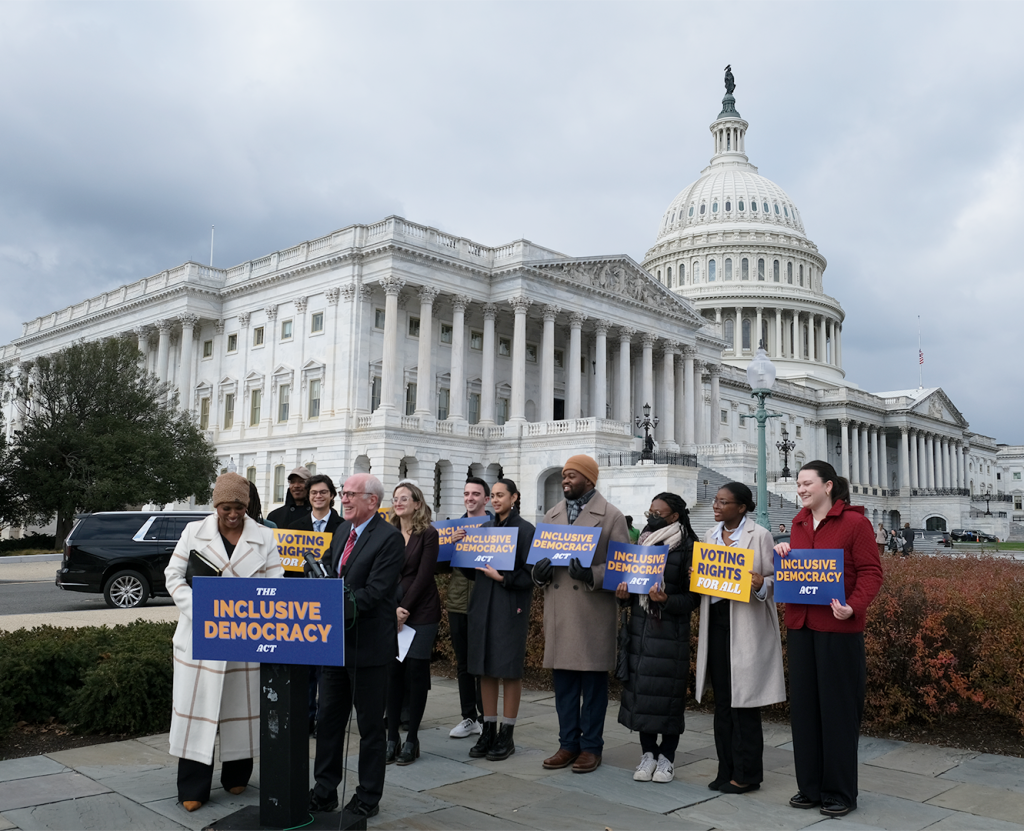Inclusive Democracy Act Introduced by Congressional Democrats
Bill would allow people convicted of a felony to vote in federal elections

Congressional Democrats have introduced legislation that would allow people convicted of a felony to vote in federal elections, a proposal that if enacted could restore the voting rights of millions of people in U.S. elections. Representative Ayanna Pressley (D-MA) and Senator Peter Welch (D-VT) submitted the legislation, named the Inclusive Democracy Act, which would guarantee the right to vote in federal elections for all citizens regardless of their criminal record. The legislation would also require incarcerated people to be educated on their voting rights and offered systems and resources for how to register to vote. The bill also requires means of vote by mail for incarcerated people.
In a statement, Pressley said the legislation was necessary due to policies and court rulings that “continue to disenfranchise voters from all walks of life, including by gutting the Voting Rights Act, gerrymandering, cuts to early voting, and more. As someone whose family has been personally impacted by mass incarceration, I know how important it is for people to maintain ties to their community, including by voting."
Welch called the bill necessary due to “antiquated state felony disenfranchisement laws.” Welch said the bill is meant to help voters “who have been systemically robbed of their right to participate in our democratic process” and promised that the legislation was part of a broader push for greater voting rights, including through potential reforms to the Voting Rights Act and limits on gerrymandering.
According to a study by the Sentencing Project, approximately 4.6 million people were unable to vote due to a felony conviction. The same study found that Black and Hispanic citizens are disproportionately likely to be disenfranchised due to felony convictions. States and territories currently determine a citizen’s voting eligibility for all levels of government. The proposed bill would not change states’ ability to expand or restrict access for state or local elections.
Voting rights for formerly incarcerated people can vary dramatically by state. While in states like Vermont and Maine people convicted of a crime never lose their right to vote in elections, 11 states generally bar formerly incarcerated people from voting indefinitely, according to the National Conference of State Legislatures.
“We are still in the Civil Rights movement and Jim Crow is not behind us when laws and courts continue to disenfranchise voters from all walks of life, including by gutting the Voting Rights Act, gerrymandering, cuts to early voting, and more,” Pressley said. “We must reject this unjust status quo and advance bold policies to strengthen our democracy and make it more inclusive.”
Read the press release introducing the Inclusive Democracy Act from Senator Welch's office. You can also read the filed Inclusive Democracy Act in full.










